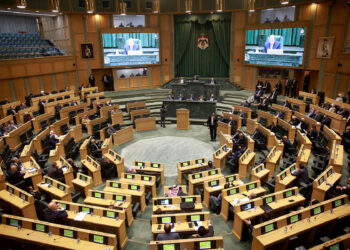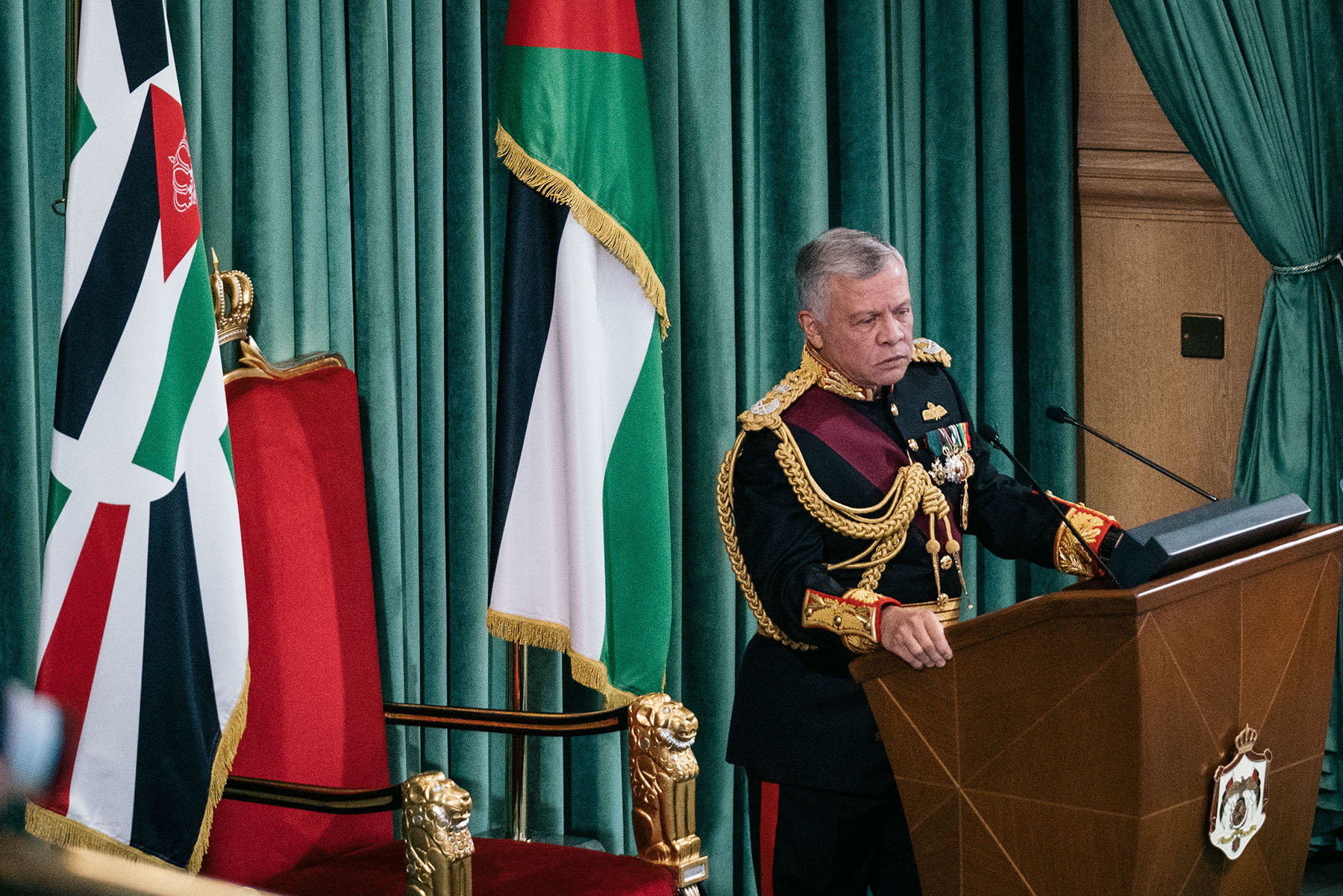Yahia Lababidi is an Arab-American writer of Palestinian background. He is the author of 11 books of poetry and prose, including most recently Quarantine Notes, short meditations composed during the Covid-19 pandemic. His new collection of poetry, Palestine Wail, is available from Daraja Press.
I wish children didn't die.
I wish they would be temporarily elevated
to the skies until the war ends.
Then they would return home safe,
and when their parents would ask them:
Where were you? They would say:
We were playing in the clouds.
– Ghassan Kanafani (1936-1972)
Since Oct. 7, more than 12,000 Palestinian children have been killed in Gaza by the Israeli military, among a total Palestinian death toll that now exceeds 30,000. Who will honor these blameless victims?
An artist has many roles. They can serve as an unblinking witness, a voice for the voiceless, an archivist of longing and memory as well as collective conscience. Palestinian writer, novelist and activist Ghassan Kanafani was one such artist, championing what he called "resistance literature" (adab al-muqawama). "My political position springs from my being a novelist," he said. "In so far as I am concerned, politics and the novel are an indivisible case, and I can categorically state that I became politically committed because I am a novelist, not the opposite."
In his passionate poetry, Kanafani movingly intertwined this vision.
All your armies
All your fighters
All your tanks
And all your soldiers
Against the boy
Holding a stone
Standing there
All alone
In his eyes
I see no sun
In his smile
I see no moon
And I wonder
I only wonder
Who is weak and
Who is strong
Who is right and
Who is wrong
And I wish
I only wish
That the truth
Has a tongue.
Kanafani was assassinated in Beirut in 1972, at the age of 36. A bomb was planted in his car by Israel's Mossad; his beloved 17-year-old niece, Lamees, was also killed. Although his life was cut short, Kanafani's work lived on, his oeuvre collapsing the false distinction between the active and contemplative life. Though justly celebrated as one of the leading literary voices not only of Palestine but the entire Arab world, Kanafani's gifts extended to painting as well. His simple, evocative art, much like his writing, exudes a quotidian grace. Shrouded figures, an empty village—they are meditations on exile, steadfastness (sumud), identity and loss, honoring the Palestinian experience and contributing to the enduring impact of his abbreviated life and work. Kanafani also designed posters that would become synonymous with the struggle for Palestinian liberation.
Kanafani was deeply concerned with Palestinian identify as well as the broader nationalist movement, employing his considerable literary and journalistic talents to advocate for resistance against the daily indignities of Israeli occupation and Palestinian dispossession. Using literature as an instrument for social commentary and political critique, like the seminal Palestinian poets Mahmoud Darwish and Samih al-Qasim, Kanafani contributed to revolutionizing Palestinian writing in content and form, breaking with tradition to employ a new literary style to explore statelessness.
In his most well-known work, Men in the Sun—a tragic novella about three Palestinian refugees in Iraq in the 1950s trying to smuggle themselves into Kuwait to find work—we encounter this arresting line: "Gazelles like to die among their people. Falcons don't care where they die."
In 1970, Kanafani was interviewed in Beirut by an Australian journalist, Richard Carleton. The interview makes for uneasy viewing today, a glimpse at the revolutionary's brave heart. Answering Carleton's fumbling, loaded questions in his role as spokesman for the Popular Front for the Liberation of Palestine (PFLP), Kanafani is fearless, uncompromising and precise. With an intense, falcon-like gaze, Kanafani makes the compelling case that freedom and dignity are worth living and dying for, refusing to accept his interlocutor's clumsy, reductionist characterization of what Kanafani calls the Zionist terror of 1948 and Israel's occupation of Palestinian territory as merely a "conflict" or "civil war." Driving his point home, when asked why the PFLP would not engage in peace talks with the Israelis—"Why not just talk?" the interviewer asks credulously—Kanafani rejects the premise, lyrically likening that prospect to a "conversation between the sword and the neck."
An artist has many roles. They can serve as an unblinking witness, a voice for the voiceless, an archivist of longing and memory as well as collective conscience.
- Yahia Lababidi
Words matter, since narratives shape realities and, in turn, how history is told and who is deemed worthy of our sympathies. That's why artists can be deemed dangerous, for daring to speak truth to power. Along with the more than 70 Palestinian journalists killed so far in Gaza in Israel's war of retaliation following Hamas's attack on Oct. 7, Israeli forces have also killed at least 13 Palestinian poets and writers in Gaza. One of them was the poet, scholar and activist Refaat Alareer, who was killed along with his brother, sister and her four children in a targeted Israeli airstrike in Gaza City. It was apparently deliberate, Euro-Med Human Rights Monitor reported; their apartment was "surgically bombed out of the entire building where it was located, according to corroborated eyewitness and family accounts." Alareer had received death threats online and by phone from Israeli accounts.
Anticipating his own death, Alareer shared the poem "If I Must Die" just one month before he was killed:
If I must die,
you must live
to tell my story
to sell my things
to buy a piece of cloth
and some strings,
(make it white with a long tail)
so that a child, somewhere in Gaza
while looking heaven in the eye
awaiting his dad who left in a blaze —
and bid no one farewell
not even to his flesh
not even to himself —
sees the kite, my kite you made, flying up above,
and thinks for a moment an angel is there
bringing back love.
If I must die
let it bring hope,
let it be a story.
Reading Alareer, I cannot help but think of Kanafani—not just his writing, but the way he too was killed by Israel. "It is difficult not to see the assassination of Ghassan Kanafani as yet another attempt to obliterate the Palestinian narrative," the novelist Hisham Matar has written, "to make true the claim, made by the Israeli politician Yigal Allon after 1967, that Palestinians no longer exist, for if they did they would have produced a literature."
Reading Refaat Alareer, I cannot help but think of Ghassan Kanafani—not just his writing, but the way he too was killed by Israel.
- Yahia Lababidi
An artist may not merely document the events of the day, but bear witness to the depths that humanity has fallen. Like a prophet, they also herald the new world to come, just out of sight. Such an artist is a reporter on the state of our soul, a sort of spirit-journalist. Oppression and injustice might be challenged through art, as Kanafani knew, just as Mahmoud Darwish, the poet laureate of Palestine, did too. "All beautiful poetry is an act of resistance," Darwish wrote.
In 1948, 12-year-old Kanafani and his family were driven out of their hometown of Acre, in northern Palestine, in the war that established the state of Israel. They fled as refugees first to Lebanon, then Syria. One of his earliest short stories, "The Land of Sad Oranges," evokes his childhood displacement: "We were heaped up there, withdrawn from our childhood, away from the land of oranges… oranges that died, an old farmer once told us, if watered by strange hands."
Wherever refugees might attempt to start a new life, they must grapple with a sense of dislocation. In a way, refugees must always feel a little posthumous, as though they are outliving themselves, having died to all they know. The uprooted person continues to pine for what is lost, experiencing an absolute and impossible love for home, as they yearn for an ideal. Exiled, they wander the world like strangers, forever out of place. This is why artists must make a homeland of their art, dipping their pens and brushes into the ink of their aching heart, for both remembrance and inspiration. Especially when your home is burning, you feel the heat half way across the world.
Three years ago, on Valentine's Day, the revered Palestinian poet Mourid Barghouti died at the age of 76, seven years after his beloved wife, the Egyptian novelist Radwa Ashour. Barghouti, a poet who lived most of his life in exile—from Ramallah to Cairo to Budapest to Beirut to Amman, where he is buried—was older than the state of Israel at the time of his death. Exile and the twin sins of occupation and oppression run through his writing. In his acclaimed autobiographical novel, I Saw Ramallah, Barghouti describes returning to his lost homeland—"to his Palestine," as Edward Said put it—for the first time in three decades, although it was less a return than a reflection on the Palestinian experience of dispossession and displacement.
"It is enough for a person to go through the first experience of uprooting, to become uprooted forever," Barghouti writes. "The homeland does not leave the body until the last moment, the moment of death," he declares in a later passage, punctuated by the following lines of poetry:
The fish,
Even in the fisherman's net,
Still carries
The smell of the sea.































![Security forces loyal to the interim Syrian government stand guard at a checkpoint previously held by supporters of deposed president Bashar al-Assad, in the town of Hmeimim, in the coastal province of Latakia, on March 11, 2025. Syria's new authorities announced on March 10, the end of an operation against loyalists of deposed president Bashar al-Assad, after a war monitor reported more than 1,000 civilians killed in the worst violence since his overthrow. The Syrian Observatory for Human Rights said the overwhelming majority of the 1,068 civilians killed since March 6, were members of the Alawite minority who were executed by the security forces or allied groups. (Photo by OMAR HAJ KADOUR / AFP) / “The erroneous mention[s] appearing in the metadata of this photo by OMAR HAJ KADOUR has been modified in AFP systems in the following manner: [Hmeimim] instead of [Ayn Shiqaq]. Please immediately remove the erroneous mention[s] from all your online services and delete it (them) from your servers. If you have been authorized by AFP to distribute it (them) to third parties, please ensure that the same actions are carried out by them. Failure to promptly comply with these instructions will entail liability on your part for any continued or post notification usage. Therefore we thank you very much for all your attention and prompt action. We are sorry for the inconvenience this notification may cause and remain at your disposal for any further information you may require.”](https://dawnmena.org/wp-content/uploads/2025/04/syria-22039885951-360x180.jpg)






